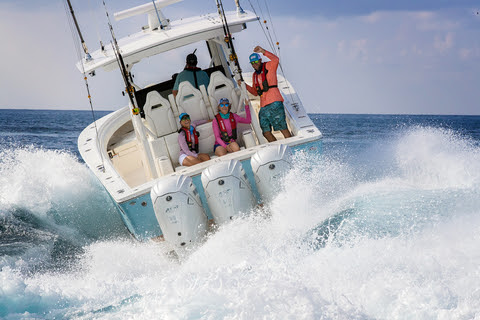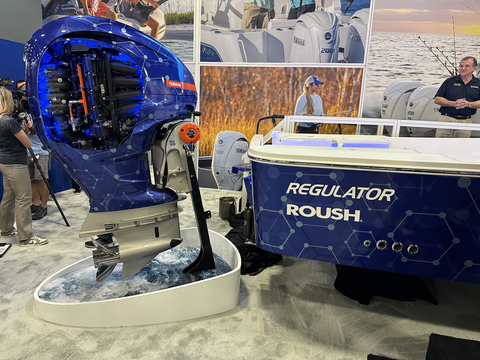New Federal Policy Steps Up Efforts to Turn Gulf of Mexico Rigs Into Reefs
Changes should help reverse the unnecessary destruction of important fish habitat
Alexandria, VA – June 27, 2013 – Offshore oil and gas platforms in the Gulf of Mexico serve as valuable marine habitat, supporting economically important recreational fishing in the Gulf region. In the face of increasing efforts to remove these structures, this week the Bureau of Safety and Environmental Enforcement (BSEE) released its amended “Rigs to Reefs” policy that will make it easier to turn inactive platforms into new artificial reefs.
The American Sportfishing Association (ASA) applauds BSEE’s action which includes several notable changes. The new policy supports and encourages the use of obsolete oil and gas structures as artificial reefs; provides greater opportunities for reefing by reducing the five-mile buffer zone between reefing areas to two miles; allows for reefing in place when appropriate in Special Artificial Reef Sites; and provides for extensions to regulatory decommissioning deadlines for companies actively pursuing a “Rigs to Reefs” proposal.
“Any angler who has fished offshore in the Gulf of Mexico knows that these reefed oil and gas platforms are meccas for sportfishing,” said Mike Nussman, ASA president and CEO. “For a variety of reasons, including some bureaucratic impediments, these important fishing grounds have been vanishing at an alarming rate. The new ‘Rigs to Reefs’ policy should help reverse the trend of eligible rigs being unnecessarily removed and allow these important structures to remain in the water for the benefit of fisheries and anglers.”
Non?producing oil rigs in the Gulf of Mexico are generally regarded as the most productive artificial reefs in the world. These structures provide habitat for dozens of fisheries, including many recreationally important species. Since 2006, removal of platforms has exceeded installations and new platforms are typically installed further from shore, reducing their accessibility to anglers.
“We thank BSEE Director James Watson and the numerous federal and state agencies and stakeholders who worked diligently to develop improvements to the ‘Rigs to Reefs’ policy,” noted Nussman. “While there is still much work that must be done to address this complex issue, this is certainly a positive step and one that should result in substantial benefits for the Gulf’s fisheries and the Gulf communities that depend on them.”






